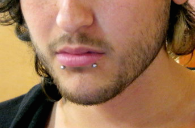Sustaining today by denying the future

When I attended primary school over four decades ago the importance of saving and being financially secure was strongly encouraged from an early age. Our little deposit books from the Post Office Savings Bank had a squirrel on the cover to remind us of the importance of putting something aside to ensure a comfortable future. School banking ensured that a culture of responsible economic management and preparing for the future was ingrained at an early age and schools were rewarded for their efforts: (Mataura Museum) On leaving home I put money into a home ownership account with the Southland Building Society and after ten years it matured into sum that enabled me to pay the deposit on my first house. In 1987, as a young teacher of seven years experience, I was able to make an important property investment. My $5,000 deposit was able to purchase a house with the same value as my annual salary ($27,000), a tidy three bedroom wooden bungalow in a good area (admittedly in Invercarg...





